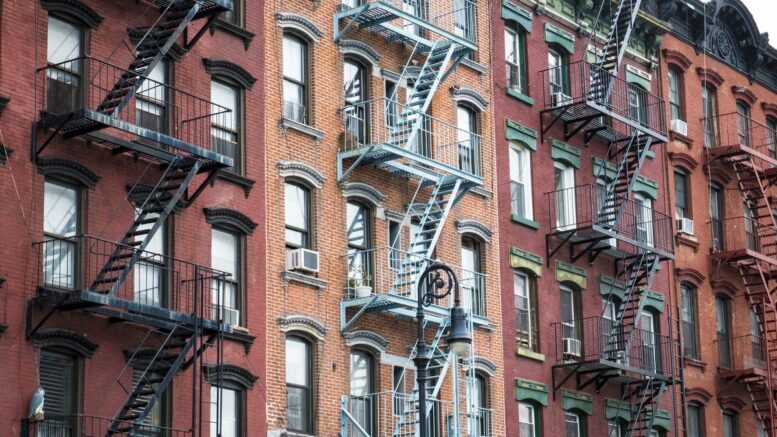A group of New York property owners who convinced the U.S. Supreme Court to reject part of the state’s anti-eviction law last month went back to the federal courts this week seeking to block the new law, which extended the moratorium until Jan. 15.
The Rent Stabilization Association (RSA) and five individual owners filed an emergency motion Thursday with the U.S. Second Circuit Court of Appeals in New York City. In it, the plaintiffs claim the extension should fall under the Aug. 12 Supreme Court order. They claim the new law contains only marginal tweaks to the portion of the section the justices struck down in a 6-3 decision.
Lawmakers passed the extension Sept. 1 in a one-day special session called by Gov. Kathy Hochul. The gist of the session was for the Legislature to continue the pause on eviction proceedings for households and businesses that have faced hardships due to COVID-19 – the previous deadline was Aug. 31.
In addition, Hochul called on lawmakers to address the issue the Supreme Court raised when the nation’s top court found that the existing law denied property owners due process since they could not challenge a self-certification of a COVID-19 hardship by the tenant.
In Thursday’s filing, the RSA and property owners claim the only change lawmakers made was to allow a landlord to swear under a penalty of perjury to challenge the self-certification. Then, they would need a court to uphold the challenge or determine if the tenant was damaging the property.
The plaintiffs claim that the new law “ignores the reality” that a landlord attempting to evict a tenant would not know if the household suffered a loss of income during the pandemic. Even the new form contains only subtle changes to the old one, they claim.
“Viewing the Extension as anything other than a continuation of the law that the Supreme Court enjoined just weeks ago would require turning a blind eye to reality,” the motion states. “The State cannot be permitted to so transparently evade the Supreme Court’s injunction, and in the process reimpose the very irreparable harms that led to the injunction in the first place.”
The RSA represents 25,000 New York City landlords who own more than 1 million apartments in the city.
In a statement, RSA President Joseph Strasburg called the new moratorium an end run around the Supreme Court’s ruling.
“It continues the vague COVID hardship declaration, which enables renters who never lost their jobs or skipped a paycheck to continue using the eviction ban as a moratorium on paying rent,” Strasburg said,
A spokesperson for Hochul told The Center Square on Thursday evening that the administration does not comment on pending litigation.
State Sen. Brian Kavanagh, D-Manhattan, disputed the RSA’s claim in a statement Thursday evening.
“Far from circumventing the judiciary, our legislation addresses the due process concerns expressed by the Supreme Court majority and is an essential part of our ongoing efforts to protect the public health during a pandemic that is still taking the lives of about 30 New Yorkers a day,” said the chairman of the Senate Housing, Construction and Community Development Committee, who served as the Senate sponsor for the legislation lawmakers passed last week extending the moratorium.
In an interview with The Center Square last week, Kavanagh said tenants who self-certified under the old law faced legal repercussions if they did so knowing they did not face hardship. Under the new law, he said landlords now can immediately challenge and take the matter before a judge.
While Kavanagh is confident the new law will stand scrutiny, the better way to keep tenants from facing eviction would be through the Emergency Rental Assistance Program (ERAP).
That program, which provides funding for renters and property owners, freezes the eviction process once an application is submitted. In addition, if the state approves the application, the landlord will agree to not pursue an eviction in most circumstances.
“The goal should be to minimize the extent to which executing an eviction is a remedy,” Kavanagh said last week.
This article was originally posted on New York landlords sue again, saying state’s new eviction moratorium still conflicts with court ruling

Be the first to comment on "New York landlords sue again, saying state’s new eviction moratorium still conflicts with court ruling"